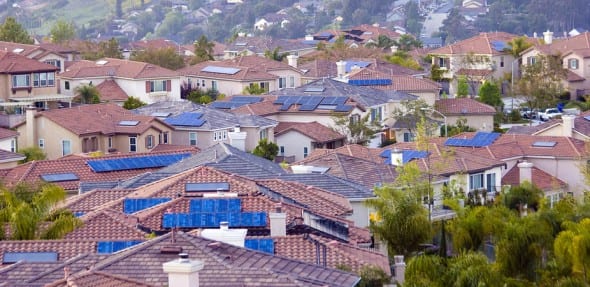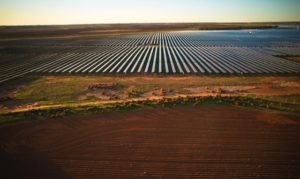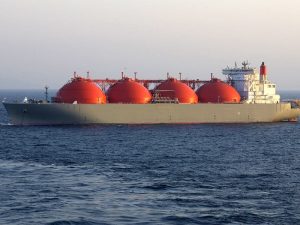Australian based credit finance group FlexiGroup has made a landmark issue of green Asset Backed Securities, a type of bond, raising $50 million to refinance residential rooftop solar systems in the first issue of their type in Australia.
The issue is small, but its significance is much greater – bringing rooftop solar into the mainstream bond market in Australia for the first time, and providing an avenue for cheaper finance for this and other renewable energy technologies. The issue is also described as the world’s first “Climate Bond certified securitised Green Bond”
The issue was well received by investors, who priced it five basis points better than a non-green certified component that was offered at the same time as part of a $260 million raising.
“This is exciting … a pricing benefit for green bonds right in front of our eyes!” said Sean Kidney, the Australian founder and CEO of the Climate Bonds Initiative.
“Australia is blessed with abundant sunshine and high penetration of rooftop solar systems. Despite some recent clean energy policy uncertainty, the fundamentals are strong for continued growth in solar.”
“Flexigroup’s green ABS deal indicates a pricing benefit arising from the green label – this is exciting news for the market and potential issuers out there … and could well be a sign of things to come for green solar bonds.”
The Clean Energy Finance Corporation invested $20 million in the transaction, which CEO Oliver Yates described as a “significant milestone” in the development of the Australian green bond market and an important demonstration of its potential.
“This is quite unique,” Yates told RenewEconomy. “Banks will now be looking for a “green story” to satisfy investment demand and better pricing, and this will encourage more offerings.
“Institutional investors who have reduced their exposure to the fossil fuel sector are looking for new investment avenues linked to clean energy.
“Green bonds can provide solid returns for investors wanting to contribute to positive climate change solutions. Other issuers can attract green investment support by also identifying and separating investment opportunities related to clean energy assets.”
The CEFC says this should be a positive signal for renewable energy financing more broadly, and the for small-scale renewable assets such as solar and solar storage in particular. It thinks that this could herald a new series of “green bond” issues in Australia.
In the last 12 months, it gained $200 million in revenues from solar financing and it sees the rooftop solar and the nascent battery storage as one of its major growth areas.
“The next major phase for the domestic solar PV sector is solar battery storage systems which are rapidly being developed and will become increasingly significant in sales volumes over the next 1 – 5 years,” it said in a recent results presentation.
The $50 million issue, arranged by National Australia Bank, and verified by Norwegian-based DNV.GL, was certified under the Climate Bonds Solar Standard.
Steve Lambert, the head of capital financing at NAB, said the issue extended its position as Australia’s leading debt financier of renewable energy.
“NAB recognises that environmental challenges such as climate change, resource scarcity and natural capital loss and degradation are challenges that affect our economy and society. This landmark transaction offers yet another option for investors and the emerging impact investment market in Australia.”











